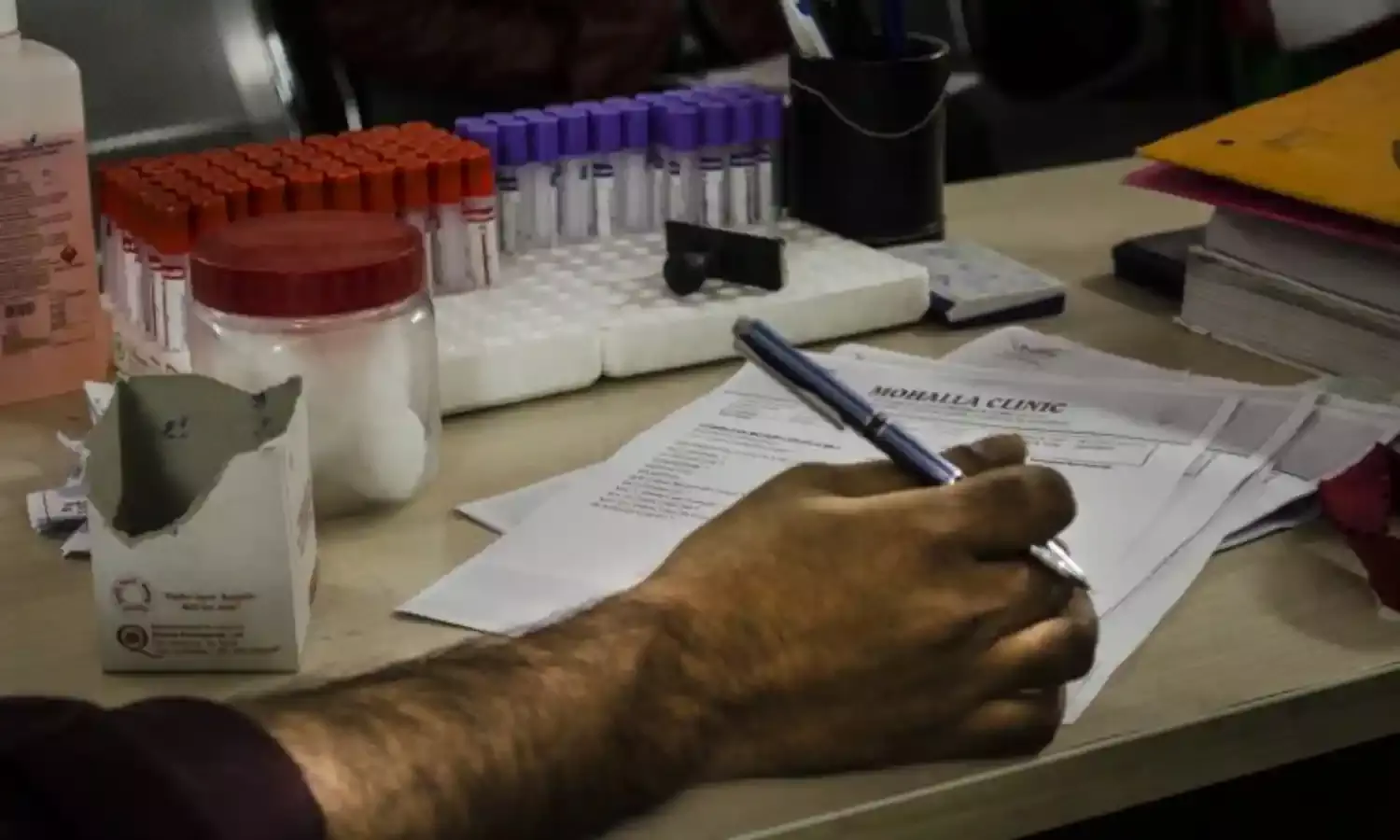Mohalla Health in Porta Cabins
In photographs

In 2015, the Aam Aadmi Party government headed by Delhi Chief Minister Arvind Kejriwal and Health minister Shri Satyender Jain initiated a project called ‘Mohalla Clinics’. Aimed at creating and fitting operational clinics and dispensaries in porta cabins and compact spaces of vacant flats and houses, the project is in the direction of providing primary health care facilities to the community or neighbourhood. Today 105 such operational clinics have been set up in the ‘mohallas’ of the national capital which operate from 9am to 1pm and witness an average footfall of over 120.
The primary duty of the mohalla clinic is the provision of first line of medicinal defence against fever, diarrhoea, skin problems, respiratory problems, common cold and cough, aches, sugar checkups, blood checkups, first aid and burns because patients suffering from such problems queue at the government hospitals which eventually decreases their efficiency.
Along with such curative care, all the lab investigations are carried out by the empanelled laboratory. These clinics provide free consultation, free medicines and free checkup. The doctors are paid Rs30 per patient.
The mohalla clinics cater to the need of people from the NCR, migratory population from different states, the fearful and under- served areas of JJ colonies, slums and densely populated regions. Thus they are centred around the ‘Aam Admi’ of the country.
The body of work is an attempt to answer questions about how a compact ‘neighboring clinic’ in the locality caters to the need of 120 people per day, how the Delhi government has fit in a full-fledged working dispensary, work place of a doctor, compounder, and how management among them in this compact space works towards the benifits of ‘Aam Admi’, how the concept of an almost free government hospital is located just a few meters away which doesn’t get into complicated paperwork. Moreover, the project having started two years ago is very fresh for the citizens of a country, whose major health care expenditure is through their own pockets and not by any medical insurance. Thus they must be educated about the same.
(The book is a result of an editing and storytelling workshop (24th Nov-29th Nov 2017) conducted by Photo Editor Sanjeev Saith, and Sharbendu De, Photojournalism faculty, AJK MCRC, Jamia Millia Islamia.)



